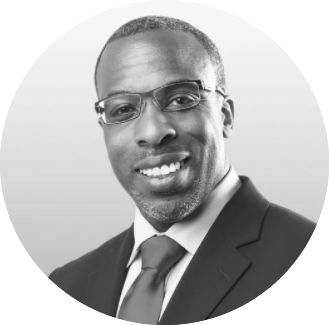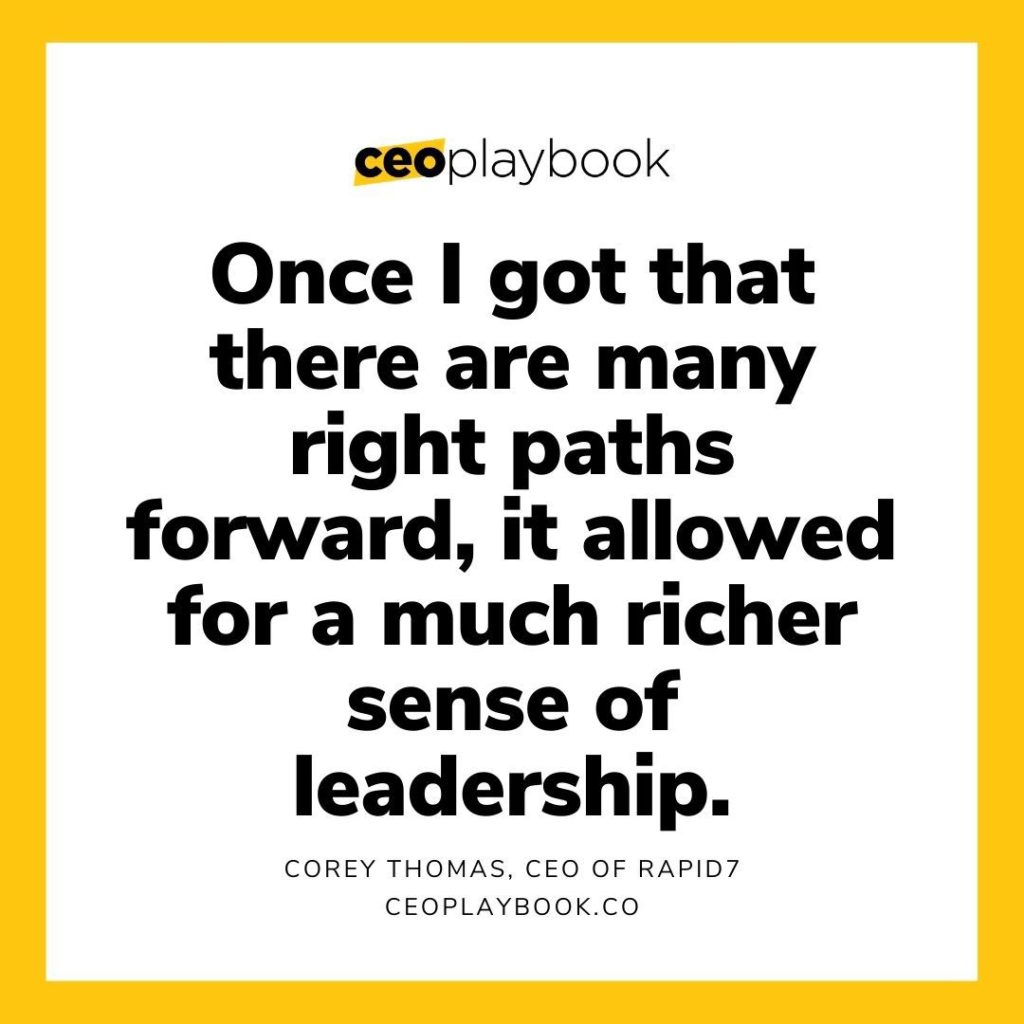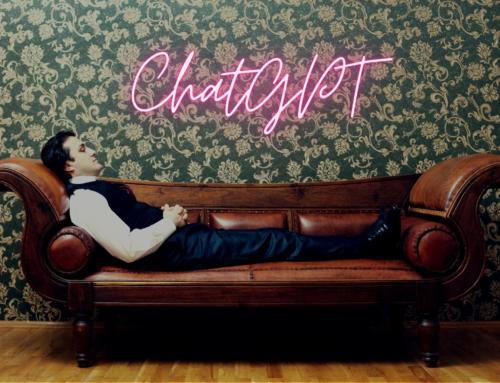Bill Gates is curious.
At least once a year, you’ll find him making his way to a remote location toting a canvas bag full of books. This annual retreat is his process for feeding his curiosity. He loves solving problems. During this period of solitude, he spends his time reading various books from an array of disciplines. That inquisitive energy fueled his success as CEO of Microsoft and continues to power his philanthropic endeavors solving the world’s gnarliest problems.
Charlie Munger is curious.
He has spent a lifetime mastering a set of great multidisciplinary models. He believes the ones that come from the hard sciences and engineering are the most important and reliable. This obsession and joy mastering the world’s fundamental mechanics have made him a legendary investor.
Elon Musk is curious.
His fascination with the cosmos has driven him to launch the first private company in nearly two decades to send humans to space.
Oprah Winfrey, Jeff Bezos, Larry Page, and Steve Jobs (RIP) are all curious.
Do you get the idea?
Some of the world’s most successful leaders are lifelong learners–polymaths actually–using their curiosity to solve problems.
But, how do you create a whole company that is curious?
Well…It starts at the top.
Last year, I launched a podcast series where I interviewed some of the country’s top entrepreneurs and CEOs, exploring what the role means to them, the importance of culture, and how they stay curious.
In one episode, Corey Thomas, the legendary CEO of Rapid7, explains how he accomplished it.
“You need to create a culture of we, and a culture of curiosity,” he shared.
I talked to him about what it takes to run a fast-growth company. We talked about developing a culture of curiosity, the importance of a “never done” philosophy, and how to be an outstanding CEO.

Corey is a technologist at heart.
He studied electrical engineering and computer science at Vanderbilt University, and he got his MBA from Harvard Business School. He has extensive experience leading technology companies to the next stage of growth and innovation.
Before joining Rapid7 and ascending to CEO, Corey was Vice President of Marketing at Parallels, a virtualization technology company. He was also a group project manager of the Microsoft server and tools division.
JB: When did you know you wanted to be a CEO?
CT: It’s not something that actually came all at once. I grew up in the era where we lionized, and we looked up to, not just political and civic leaders but top CEOs and business leaders as good role models. I thought that it would be amazing to do something like that. I didn’t think it was accessible, frankly, as a kid, so I always found myself working in technology and working my way up the ranks. I did not always see myself as a CEO. But it really started catalyzing when I did a program called Harvard Summer Venture Management Program where James Cash, one of my mentors, asked me to think deeply about the artificial limits that I put on myself and my aspirations. That started to unlock it. Over time, I got more and more exposure to business leaders, CEOs, executives, and political leaders. It felt more accessible and doable. It became an aspiration that I then believed I could pursue.
JB: How would you describe the CEO role? What does CEO mean to you?
CT: I don’t think there’s a formula for leadership or for being CEO. What I mean by that is I believe the term CEO means different things in different contexts and different environments. I think the important thing to consider is that I’m the CEO of a technology company that has permission to lose money to figure out how to solve a problem. And that’s one breed of CEO, but there are other breeds of CEOs that will not want that level of experimentation at all.
In my context, the core role of the CEO is an unlimited set of problems to solve. The first thing I have to figure out is which problems are worthy of the team’s time, the investors’ money, and the collective energy that actually goes into it. I always start with that because, ultimately, there are lots of things that many people can do, but picking which area to focus on is a huge part of the CEO role.
The other role of the CEO is to manage a set of tensions that actually are healthy, natural tensions. I want as big an aspirational problem as I can possibly have because that creates the most value for society, financial value, and rewarding value. I want to make sure that it has some hope or prayer of success and achievement. If it’s highly achievable, it probably means anyone can do it. If it’s aspirational and it’s not achievable, then I’m actually going to have a failure. So, I want something that’s significantly valuable, difficult, and meaningful. It needs to be achievable enough where the team can see progress on the journey along the way. One of the core jobs of any leader is managing the right set of tensions within an organization.
The CEO ultimately has to build a team and build a culture. That’s finding the right people that will fit together, and the culture is deciding how teams interact with one another and what they believe in. The CEO is responsible for figuring out when changes need to occur and when to give rope, time, and flexibility to the team, when to actually push things along and when it is time to move on. Those are the things that I consider a core part of the CEO role.
JB: Was the Rapid7 culture created during your tenure?
CT: The company had had an amazing culture when I joined. The culture has evolved since then, though. One of the key hires that we made even before I was CEO was Christina Luconi, our Chief People Officer. She has always been a deep believer that culture is key to successful organizations. She taught me a lot about what it actually meant in practice and what it meant to build onto cultures. I remember one of the first exercises after I became CEO; we had to think about updating the culture.
She said, “Hey, I know you want to outline it and dictate how people respond. But, why don’t you do it the other way around? We’ll have the team create it, and then you’re going to get feedback, and they’re going to respond.” It ended up being such a powerful way to create and define the culture with such a deep buy-in.

JB: What I find interesting is your point that culture is a living thing, so over time, you need to update it to reflect the current time and the current DNA of the company. Have you found that you change it often? Can you give us an example of a change you made that was driven by that?
CT: I think culture lives in beliefs and behaviors. So the cross-section is where most cultures live. We observed a couple of things as we were going along our journey. One of them is that our culture did a great job creating this sense of accountability–this inherent sense of accountability and belief. It also has an inherent sense of teamwork and a special focus on and desire to improve customers’ lives. But it had a few things that our broader leadership team thought we lacked and hugely important. It was that the sense of caring for the customer was too narrowly focused on what people did, so there wasn’t this integrated sense of the customer, so people were optimizing around a limited set.
One of the things that we really focused on as we evolved the culture was customer focus and this deeper sense of customer curiosity or what some people talk about as customer obsession. We believe our culture should be curious by nature. So when we dug up some things that we thought could be improved, we saw that we needed to emphasize this curiosity more.
This way, people could go from a place of “we work well together, and we have an impact” to include “and we’re really trying to understand what matters the most.” There’s a difference between people who are solving problems and people who are intensely trying to understand what’s happening around them and what’s happening with our customers. That requires a much higher sense of curiosity than we had before.
The second one– that we ended up investing a lot more time in–was this notion of having an impact together.
There’s a natural human tendency to say I did my job and feel good about my job. But it was a big deal for us to say it doesn’t matter whether we hit our goals, whether we were accountable, and whether we did everything we said we’re going to do if, ultimately, our customer is not significantly more successful. Because basically, we failed. It really put the focus on the fact that we can’t just pick achievable goals. We have to actually change people’s lives in some meaningful way.
Another example I’ll give you is the results of a survey of our customers. They gave us high marks for our products and high marks for their experience, especially in comparison to others. Then when we asked them, “How are you doing?” and “Are you successful in your job?” and “How is your team evaluating you?” the marks were much lower.
So, I said, how can we live in a world where we’ve patted ourselves on the back, and our customers seem to accept what we’re doing, but they’re struggling, frustrated, tired, and they don’t feel like they’re achieving? We have to measure ourselves by how we have an impact that actually changes the lives of our customers.
JB: You’re right people, and companies tend to be focused on their own success, but the customer success ultimately is the company’s success. So, setting goals that integrate that view is critical. I took a peek at your core value statements. There are three that jumped out at me, and one is “continuous learning.” Tell me about that.
CT: Our “never done” philosophy is one of our oldest values. Its orientation and delivery are that you should not stop evolving and developing just because you finished school. This goes back to the curiosity point. It’s one of the things that we found people that don’t fit within Rapid7 are people who say, “I understand how the world works. I understand what should be done. You’re hiring me for my expertise and my knowledge. If you just do what I say, everything will be good.”
Whenever I hear that point of view, I listen and question if that is the expertise that’s warranted. Most importantly, what I’m listening for is that while that may be 100% true, that tells me that this person has a limited shelf life. After I learn what they already know, which always takes a shorter time than people think, they have no more value.
So what I tell people is that if you want to be valuable, then you always have to be expanding your own knowledge base, your own perspective, your own skillset, and contributing that back to the world at large, to your company, wherever else. That’s the idea of “never done” and “continuous learning,” the never-ending journey of self-development and improvement.
The job of a leader is to create the environment and the context where people can actually do the most, accomplish the most, and teams can be the most impactful.
JB: Do you also have a “continuous learning” ethos?
CT: Yes, I do. I’m always learning something new in the business context. One of the things I’m focused on learning right now is how to build rich, complex partnerships.
I love history.
I’ve studied everything from the alliances around World War I to great historical business partnerships. I was just rereading several books around partnerships, such as Katharine Graham and Warren Buffett’s partnerships. I just read the Guns of August, a book that I absolutely adore that happens to be about the first couple of days of World War I. I just reread The Outsiders, which is about CEOs–many of them engineers, by the way–and how they created success and value. I’m always trying to learn something from a business or historical context.
My belief is you should always do something humbling. So, martial arts has been extraordinarily humbling. I watched some of the videos of myself now, and I’m really embarrassed. Last year, I was teaching myself to swim. I was taking lessons. I was six months into it, and I can barely do it. It was just so challenging, but you know, my belief is that it’s good for you to know that things are hard and to keep pushing through them.
JB: You’ve touched on being a technologist turned CEO a few times. We’re similar in those ways. Do you feel it makes you a better CEO?
CT: I think I’ve built on what I learned from a systems-thinking perspective to create some other things. I’ve built many other things, whether it’s around empathy, learning, understanding culture, or whether it’s about spending a little bit of time selling stuff. So, I think, ultimately, it has been incredibly helpful. I do believe that the ability and the enjoyment of thinking through complex systems that you don’t understand the solution to are extraordinarily valuable as a bedrock. But I would say if I stopped there, I would be a horrible CEO.
JB: This brings me to a point I make a lot. The CEO role is in no way a destination but a journey, perhaps a lifelong one. What changes have you seen in your own career that exemplifies the role’s journey aspect?
CT: I had this vision of the CEO like this grand general in battle giving direction. One of the great generals, Stanley McChrystal, who I deeply admire, says being a good general is like being a gardener.
I remember one of the leaders at Microsoft told me (It was hard to hear at the time. I thought he was actually crazy.), “Cory, the goal is not to get the right answer all the time. It’s actually to get the right direction and most of the right answer, but actually move people along on the journey. If you’re going to stop the whole engine because we’re 2% wrong, that’s actually the wrong decision.” I had this view that there was a right answer and that you have to pursue the right answer. That ended up being a lack of curiosity on my part. I started seeing a lot more shades of gray. So that was one shift, understanding the difference between thinking there is one right answer versus many right paths.
Once I got that there are many right paths forward, it allowed for a much richer sense of leadership. The other shift was just learning the job of a leader. A leader’s job is to create the environment and the context where people can actually do the most, accomplish the most, and teams can be the most impactful. That sometimes requires making decisions, but that ends up being a much smaller part of the job than I initially thought it would be.
JB: As CEOs, we all make mistakes, Corey. How do you learn from yours?
CT: My take is that the acknowledgment should be both to yourself and the public. The value of the public declaration of mistakes, I think, creates a deeper impression on you as an individual. There’s something about public commitments and public acknowledgments that actually just enriches you in a painful way. Growth is not enjoyable, but it’s necessary. Discussing those mistakes publicly and candidly is essential. When I say public acknowledgment, it doesn’t mean you write a press release of all the things that have gone wrong. It’s more like here’s what I learned, and here’s how I think about certain things differently. There’s a lot to learn in being willing to hear responses to that.
JB: There are not many CEOs that look like you and me. What advice would you give to those who wish to aspire to be like you, given your success?
CT: It’s unfortunate because I think society and our country would be better off if we actually had a wider range of leadership perspectives.
I will just share some of the best advice that I got along the way, which is to be concerned, first and foremost, with building the skills, the perspectives, and the relationships so that if you happen to get the job, you will be great at it.
Someone advised me, “Yes, it’s going to be harder for you but what I really want to know is that is if you get that job, are you going to be the best person you can be?” Prepare yourself like you’re going to be extraordinary at the job. It’s also much more likely that you’ll be noticed. While it is definitely unfair that it will be harder, setting that high standard for yourself is a gift that you can give yourself that you’ll value so much.
The second piece of advice that I got is, sometimes, because things are limited–I think this applies to both women and people of color–there’s a rush to take any job.
The advice I received was don’t lower your standards on the jobs that you actually take. If, at some point, you’re offered a really poor CEO job, which I was offered several at different points in my career, don’t limit yourself there either. There have been these pieces of advice that have actually helped me develop the perspective.
I think you’ll find lots of literature about the power of relationships and sponsorship, so I’m not going to repeat any of that stuff over. Those are the two things that stood out and that were unique and helpful to me.
###


